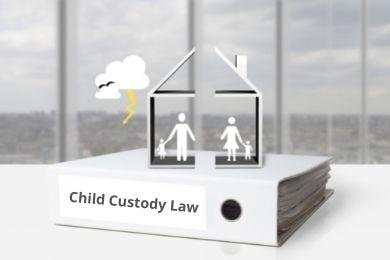Recent Blog Posts
What Damages Can a Plaintiff Receive in a Breach of Contract Lawsuit?
 Businesses often rely on contracts to protect their rights and interests, and these legal agreements can protect them from financial losses if they meet all of their contractual obligations. However, there are many cases where a business may be placed in a difficult position because another party failed to fulfill a contract’s terms. In these cases, a business may pursue a breach of contract lawsuit, and it may seek to recover damages from the other party to address the losses that it experienced because of the breach.
Businesses often rely on contracts to protect their rights and interests, and these legal agreements can protect them from financial losses if they meet all of their contractual obligations. However, there are many cases where a business may be placed in a difficult position because another party failed to fulfill a contract’s terms. In these cases, a business may pursue a breach of contract lawsuit, and it may seek to recover damages from the other party to address the losses that it experienced because of the breach.
Types of Breach of Contract Damages
When pursuing civil litigation to address a breach of contract, a plaintiff will not only need to show that the defendant failed to meet their obligations under the contract, but they will also need to demonstrate that they suffered harm because of the breach. If a plaintiff proves that the defendant’s actions caused financial losses or other forms of harm, a court may award damages to the plaintiff. These damages may include:
Should I Include Advance Medical Directives in My Estate Plan?
 During the estate planning process, most people will focus primarily on what will happen after their death, addressing how their property should be distributed among their heirs and how they want to handle the disposal of their remains. However, an estate plan can also address how certain matters will be handled while a person is still alive, including the types of medical care they will receive. Addressing these issues in your estate plan can be important, since it will help your family members avoid uncertainty, and it will ensure that you will receive the medical care and treatment you want, no matter what happens.
During the estate planning process, most people will focus primarily on what will happen after their death, addressing how their property should be distributed among their heirs and how they want to handle the disposal of their remains. However, an estate plan can also address how certain matters will be handled while a person is still alive, including the types of medical care they will receive. Addressing these issues in your estate plan can be important, since it will help your family members avoid uncertainty, and it will ensure that you will receive the medical care and treatment you want, no matter what happens.
Advance Medical Directives in Illinois
Illinois law allows you to create the following types of advance directives to address your medical treatment:
-
Living will - This document addresses what you would like to happen if you become terminally ill and cannot express your wishes regarding your treatment. You can specify whether you want life-sustaining treatment to be provided or withheld or whether you want to receive treatment meant to provide comfort and ease your pain. A living will only applies in situations where you have an irreversible condition that will lead to your death, and any treatment provided would only delay death temporarily.
What Terms Should Business Partners Include in a Partnership Agreement?
 There are multiple types of business contracts that can provide a business and its owners with legal protections and ensure that a company will be able to operate successfully. A well-drafted partnership agreement is one of the most crucial types of contracts for a business since it will define the relationship between business partners and ensure that they fully understand their rights and responsibilities. When creating a partnership agreement, an attorney with experience in business law and contractual issues can make sure the terms of this contract will protect the partners’ rights and meet their ongoing needs.
There are multiple types of business contracts that can provide a business and its owners with legal protections and ensure that a company will be able to operate successfully. A well-drafted partnership agreement is one of the most crucial types of contracts for a business since it will define the relationship between business partners and ensure that they fully understand their rights and responsibilities. When creating a partnership agreement, an attorney with experience in business law and contractual issues can make sure the terms of this contract will protect the partners’ rights and meet their ongoing needs.
Terms of a Partnership Agreement
A partnership agreement should address:
-
Percentage of ownership - An agreement should fully detail each partner’s stake in the company based on the money or assets they have invested. An agreement should also describe how profits and losses will be allocated between the partners, and these allocations will usually be based on each partner’s ownership percentage.
3 Situations That May Lead to Complex Child Custody Disputes

Having a child can bring a couple closer together and make them more committed to each other. Unfortunately, child-related matters can be some of the most divisive and contentious issues that can arise if the couple decides to break up. Child custody cases can become heated, with parents turning on one another. This is why it is critical to have a skilled Illinois child custody attorney to represent you.
Addressing Child Custody in Illinois
In Illinois, “allocation of parental responsibilities” is the legal term now used to refer to child custody. In any custody case, the courts will have to decide how parents will share responsibility for making decisions regarding the child (i.e., education, health, and religion) and what percentage of time the child will spend with each parent. All of this information is stipulated in a parenting plan that is ultimately approved by the court.
Factors That Can Complicate the Property Division Process During Your Divorce

When a person gets married, “yours” and “mine” becomes “ours.” Unfortunately, untangling property and debt during a divorce is often one of the most complicated and contentious aspects of the divorce process. Many divorcing couples assume that they can easily divide assets on their own. Armed with a calculator and a cooperative attitude, they begin allocating property only to realize that the process is much more complex than they realized it would be. If you are getting divorced and any of the following factors are involved, you may need professional legal assistance to divide your property during divorce.
Owning Hard-to-Value Assets or Property with Fluctuating Value
Whether you are negotiating an out-of-court property division arrangement or your divorce case goes to court, property cannot be distributed to the spouses without accurately valuing the property. Some assets are much easier to value than others. Determining an accurate value for antiques and collectibles, for example, can be very difficult without a professional appraisal.
Estate Planning Considerations When You Have a Disabled Child
 Being the parent of a disabled child is a challenging situation in which to find yourself. If you are the parent of a disabled child, one of the most pressing issues you may be facing is how to protect your child’s wellbeing when you are no longer around to care for him or her directly. Estate planning is important for any parent; however, it is especially crucial when your child has a mental or physical disability. A special needs trust is an estate planning tool that can help you ensure that your assets are used for your child’s benefit after your death.
Being the parent of a disabled child is a challenging situation in which to find yourself. If you are the parent of a disabled child, one of the most pressing issues you may be facing is how to protect your child’s wellbeing when you are no longer around to care for him or her directly. Estate planning is important for any parent; however, it is especially crucial when your child has a mental or physical disability. A special needs trust is an estate planning tool that can help you ensure that your assets are used for your child’s benefit after your death.
A Last Will and Testament May be Insufficient
If you are like most people, you probably assume that you can simply leave your child funds and property through your will. A last will and testament is a great way to ensure that important family heirlooms are passed to the intended beneficiaries and formalize your last wishes. However, a will alone may be insufficient in some situations. Leaving a lump sum inheritance to heirs is not always the best option. Furthermore, wills must pass through “probate” or the process of legally validating the will before assets can be distributed to heirs. Lastly, a disabled child who receives an inheritance through a will may be ineligible for certain government assistance programs.
Are Parents Still Required to Pay Child Support If They Quit or Lose Their Job?
 According to Illinois law, divorced and unmarried parents are expected to financially support their children. In most cases, the parent who spends the most time directly caring for the child receives financial support from the other parent in the form of child support. The amount that an Illinois parent pays in child support is largely based on his or her income. If a parent loses his or her income, does he or she still have to pay child support?
According to Illinois law, divorced and unmarried parents are expected to financially support their children. In most cases, the parent who spends the most time directly caring for the child receives financial support from the other parent in the form of child support. The amount that an Illinois parent pays in child support is largely based on his or her income. If a parent loses his or her income, does he or she still have to pay child support?
Job Loss Does Not Automatically Excuse a Parent from His or Her Child Support Obligation
Child-related costs including childcare, education, and housing can quickly add up. Most parents rely heavily on the financial support they gain from child support payments to cover child-related expenses. A child’s financial needs do not disappear simply because a parent quits or loses his or her job. Consequently, a parent’s child support obligation does not automatically disappear if he or she is suddenly without income. However, the parent may qualify for a reduced child support obligation through a “Petition for Modification of Child Support.”
Should I Use a Will or a Trust to Transfer Assets to Heirs in Illinois?

If you are thinking about setting up an estate plan, you are already ahead of most of the population. While estate planning is a key part of ensuring that assets are bequeathed to the right heirs, many people neglect this crucial process. Two of the most common estate planning tools are testamentary wills and trusts. There are advantages and disadvantages associated with both of these instruments. The type of estate planning tools that you will need depends on your financial and personal goals concerning estate planning.
A Testamentary Will Allows You to Dictate Inheritance Issues
A testamentary will is a document that states how your property should be handed down to heirs. Your will may also contain directions about funeral arrangements. If you have minor children, you can appoint a guardian in your will who is tasked with caring for your children if you and the other parent pass away. Unlike a trust, a will does not take effect until after your death. A will must be authenticated by the court during probate before heirs can receive their inheritance.
How Is Property Divided in an Illinois Divorce?

The merging of two lives through marriage also includes considerable financial melding. Dividing funds and property during a divorce is often one of the most complicated and contentious parts of the divorce process. If you are thinking about getting divorced in Illinois, it is important to know your rights regarding property distribution. You and your spouse may be able to reach your own property settlement or the court may need to intervene. An experienced divorce lawyer can assist with property division negotiations or represent you in court during a trial.
Reaching a Property Division Agreement With Your Spouse
Spouses have the option of deciding their own property division agreement without the court’s input. However, doing so without professional support can be very challenging. It can also result in a settlement that is unfairly biased toward one party. An experienced divorce lawyer can help you and your spouse negotiate property division issues and reach a mutually agreeable solution. During an Illinois divorce, each spouse is expected to submit a full inventory of his or her assets, income, and debts. Some spouses “forget” to include assets or underreport their income. If you have any concerns about hidden assets or financial fraud during your divorce, hiring a skilled divorce lawyer is essential.
How Is COVID-19 Influencing Parenting Plans in Illinois?

COVID-19 global pandemic has affected nearly every aspect of most people’s lives. If you are an unmarried parent, divorced parent, or you are considering divorce, you probably have questions about how COVID-related lockdowns may influence child custody issues. In Illinois, the term “child custody” has been replaced by language that better reflects most parents’ parenting situations. “Parental responsibilities” refers to parents’ decision-making authority while “parenting time” refers to the time a parent spends directly caring for the child. Coronavirus can have a dramatic influence on both of these issues.
Parenting Time and Parental Responsibilities
Between school closures and concerns over the spread of COVID, more children than ever are attending digital classes remotely. Before the age of COVID, most parents of school-aged children did not have to worry about childcare during school hours. However, now that classes are remote, parents may need to figure out how to adapt. If your child is too young to stay home by himself or herself, you and your child’s other parent may need to work out an arrangement regarding who will watch the child and when. This parenting time arrangement may be dramatically different than the arrangement that you made before COVID-related changes.

















